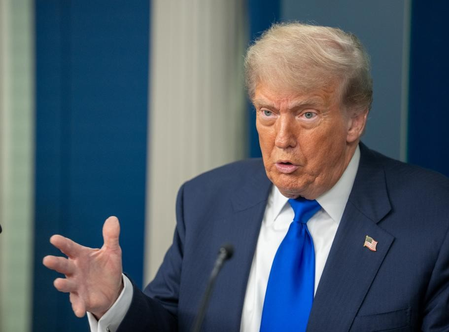
Washington, June 28 (IANS) The US Supreme Court ruled that district judges lack the authority to grant nationwide injunctions against the Trump administration’s executive order to effectively end birthright citizenship.
In a 6-3 vote along ideological line, Supreme Court justices granted a request by the Trump administration to narrow the scope of nationwide injunctions imposed by district judges, Xinhua news agency reported.
“Federal courts do not exercise general oversight of the Executive Branch,” Justice Amy Coney Barrett wrote for the majority, noting that “When a court concludes that the executive branch has acted unlawfully, the answer is not for the court to exceed its power, too.”
However, the three liberal justices issued dissents to the decision.
“Children born in the United States and subject to its laws are United States citizens,” Justice Sonia Sotomayor said, adding “that has been the legal rule since the founding.”
“The gamesmanship in this request is apparent and the Government makes no attempt to hide it,” she noted. “The majority ignores entirely whether the President’s Executive Order is constitutional, instead focusing only on the question whether federal courts have the equitable authority to issue universal injunctions.”
The Trump administration quickly applauded the Supreme Court’s decision.
US President Donald Trump called the decision a “giant win” in a post on Truth Social. He noted later in the White House that the ruling is a “monumental victory for the Constitution.”
“A huge rulling by the Supreme Court, smacking down the ridiculous process of nationwide injunctions. Under our system, everyone has to follow the law — including judges!” US Vice President JD Vance echoed in a post on X.
US Attorney General Pam Bondi said in a post on X that the Supreme Court “instructed district courts to STOP the endless barrage of nationwide injunctions against President Trump.” She added that the US Department of Justice will continue to “zealously defend” Trump’s policies and his authority to implement them.
In a press conference with representatives from several of the organizations that sued to block Trump’s executive order dismantling birthright citizenship, the groups announced that they have filed a class action lawsuit and a motion for a temporary restraining order that would continue to block the executive order, NBC News reported.
William Powell, senior counsel for the Institute for Constitutional Advocacy and Protection, explained the plaintiffs’ decision to file a new motion and a class action in the report, “What the Supreme Court’s decision means is that we have to get that order struck down using different procedures.”
Conchita Cruz, the co-founder and co-executive director of the Asylum Seeker Advocacy Project, was quoted as saying by NBC News that “it is a confusing moment for immigrant families as they see the news and are not necessarily sure what it means, or how it could impact them.”
“We are outraged — and we’re not backing down. Immigrants and their families deserve protection, dignity, and justice. We will continue to speak out, organize, and fight for our rights,” the National Latina Institute for Reproductive Justice, a reproductive justice organization representing the Latina community, wrote in a post on X.
A senior legal analyst noted in a CNN report that the Supreme Court’s decision to back Trump’s effort to curtail lower court orders has “fundamentally shifted the balance of powers away from the courts to the president.”
Elie Honig, a former state and federal prosecutor, said in the report that it is now “more burdensome” for plaintiffs looking to challenge the Trump administrations policies.
Trump signed the order hours after taking office on January 20. It directed federal agencies to halt recognition of citizenship for children born after February 19, if neither parent is a US citizen nor a permanent resident.
Over 20 states and civil rights groups immediately filed lawsuits challenging the order, calling it blatantly “unconstitutional.”
The 14th Amendment of the US Constitution states that “all persons born or naturalised in the United States, and subject to the jurisdiction thereof, are citizens of the United States.” Trump’s executive order argued that the 14th Amendment “has always” excluded from birthright citizenship persons who were born in the United States but not “subject to the jurisdiction thereof.”
Federal judges in the states of Washington, Maryland and Massachusetts had issued nationwide injunctions halting implementation of Trump’s executive order.
–IANS
int/rs
